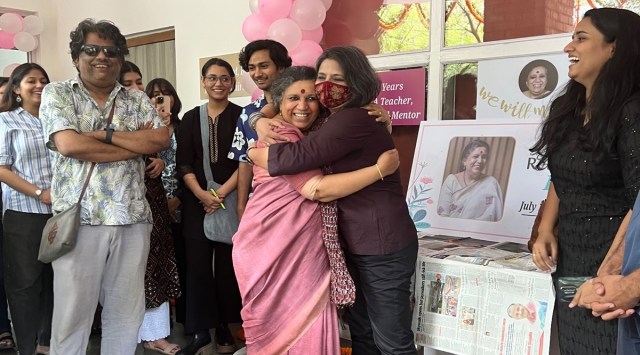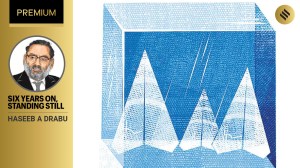Farewell, Ira Bhaskar: Teacher par excellence
The foundational courses offered at SAA were crucial for us in solidifying our conceptual engagement with film as a form, with its distinct modes of production that demanded that it be studied as an audiovisual medium in its own right.
 Prof. Ira Bhaskar. (Twitter/ Swara Bhasker)
Prof. Ira Bhaskar. (Twitter/ Swara Bhasker) Written by Professor Darshana Mini
It was with a mix of trepidation and excitement that I joined the School of Arts and Aesthetics (SAA) in JNU in 2011. I came from an English literature background, and at the time, film studies was a discipline that was relatively new in India. Except for a few places like Jadavpur, JMI and JNU, there weren’t many universities that offered specialised courses in film studies. Knowing that Ira Bhaskar, one of the two faculty (the other was Ranjani Mazumdar) who taught in the Cinema Studies area in SAA, previously taught English literature at University of Delhi was a great solace, since to me, it signified that switching from literature to film studies was actually possible.
Both Ira Bhaskar and Ranjani Mazumdar were trained in film studies at New York University, and the Cinema Studies programme had an exciting roster of courses that attracted a mix of students from humanities, social sciences and journalism/mass communication backgrounds.
I first met Ira at the Architectures of Erotica conference in 2010 at JNU. At the time I was pursuing my M.Phil. at CSSSC, Calcutta, and I was touched by the warmth and generosity she expressed towards me, even encouraging to pursue a PhD at SAA. Working on a project on soft-pornography in Malayalam cinema, and wondering whether it has a scope in Indian film studies, Ira’s support and confidence in the project mattered a lot as I developed the project in the next few years.
The foundational courses offered at SAA were crucial for us in solidifying our conceptual engagement with film as a form, with its distinct modes of production that demanded that it be studied as an audiovisual medium in its own right.
The Introduction to Film course that was mandatory for all MA students, and co-taught by Ira and Ranjani, was a valuable tool-kit for me, both as a pedagogical model of how to teach film studies in Indian class rooms, as well as giving me a sense of film studies which was a still burgeoning field in India.
I now teach an Introduction to Cinema class at the University of Wisconsin-Madison, and I fondly look back at Ira’s sessions and am often struck by how her pedagogical approaches and methods are foundational for a lot of us, not just as researchers and scholars of film, but as teachers too.
It wouldn’t be a stretch to say that many of us have taken a slice of what we learnt from her to our own respective institutions. The Melodrama course that Ira offered for M.Phil students was where I really got to know Ira more closely as a teacher par excellence — someone who pushed us to think about whether melodrama was a “mode” or genre (or both), while giving us an expert view of debates on melodrama in various global contexts.
The presentation I did for that class on Pandora’s Box (Dir. G. W Pabst, 1929), focusing on the character Lulu and the figure of femme fatale, was where I first explored some of the contradictions around the erotic agency of cabaret performers. I am still thankful to Ira for asking me questions that made me think about the crossovers between different performance traditions and what it means for film studies to tap into interdisciplinary approaches for analysis — approaches I subscribe to even now.
Since Ira was the warden for a hostel at JNU, as hostelers we always had access to her at any point in time. She was always a warm host, and would never let us leave without food or a snack, even if we came unannounced — to those of us living away from our families for the first time in our lives, Ira was not just a teacher, but some who cared for you.
Scholarship and academic success are measured by the impact that one can have on the next generation of scholars. As Ira retires today, she can be proud that she has in fact paved the foundation for a department that has supported students who come from various spectrum of experiences, who will be taking on the field of film studies with the same values that she has passed on with generosity and kindness. To me, Ira has also shown why empathy matters and that good scholarship and a generous spirit can go hand-in-hand — something that is often easy to forget in the trappings of academic debates and institutional hassles. Wishing you a wonderful retirement, and hoping that other spaces and other people outside of SAA will be graced by your intellect and your generous spirit!












